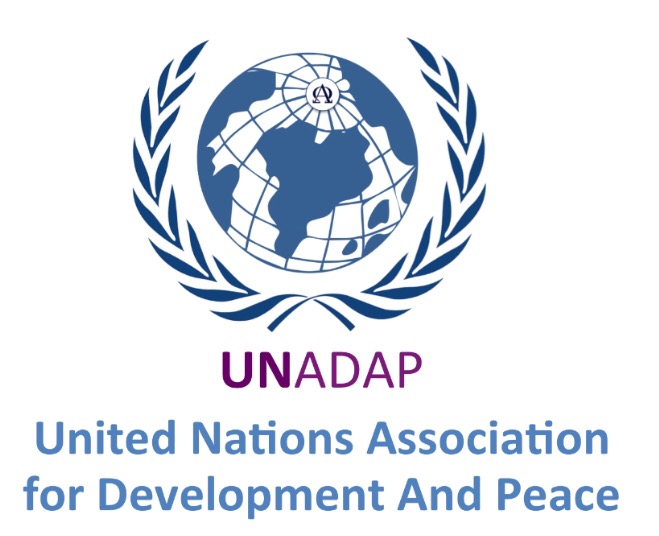Empowering families to start anew after a series of emergencies | Sierra Leone, UNICEF
- UNADAP | United Nations
- Dec 1, 2022
- 3 min read

FREETOWN and MAGBOGBOKO, Sierra Leone – In 2014, the world's deadliest outbreak of the Ebola virus struck West Africa, killing more than 11,000 people. Over 12,000 children in Sierra Leone lost one or both parents.
Three years later, another catastrophe hit: devastating floods and mudslides took hold of the capital city, Freetown, killing 1,141 people and leaving 3,000 homeless.
These recent emergencies placed additional burdens on communities that were already vulnerable. With over half of its population living below the poverty line, Sierra Leone is one of the poorest countries in the world. Many families struggle to meet their children’s basic day-to-day needs.
UNICEF has taken an active role in helping these affected communities forge a better future, working with partners to help children in Sierra Leone return to school and families to rebuild homes, and getting them back on the path toward security and prosperity.

Lives lost, mothers take charge
When 12-year-old Sullay Koroma lost his father to Ebola, he thought his days in the classroom were finished. The family’s breadwinner gone, Sullay dropped out of school after the third grade.
“I needed help to continue with school, and I was not sure where that would come from,” he says.
For many families, the Ebola outbreak reversed the economic gains achieved since the end of Sierra Leone’s decade-long civil war in 2002.
Two years later, Sullay has been able to return to school with the help of some industrious mothers in his village of Magbogboko, in northern Sierra Leone. The women are members of the community-based Mothers’ Club, which uses profits from activities like gardening and arts and craft production to help vulnerable children like Sullay get an education.
Equipped with a new uniform, books and pencils from the Mothers’ Club, Sullay has joined his peers in fifth grade. He dreams of becoming an engineer so he can build enough schools to provide an education for every child.
Self-starting entrepreneurs
UNICEF and partners like ActionAid International Sierra Leone, with support from the people of Sweden and other donors, provide each club with 2 million Sierra Leonean leones (about US$260), which they then use for activities like farming, soap production and tie-dye. “The clubs decide what they want to do, with some guidance,” explains Robert Sam, Project Officer at ActionAid. “They sell what they produce and use profits to pay children’s school fees, buy uniforms, books, bags, etc.”
Agnes Tarawallie is chairperson of the Panlap Mothers’ Club, the group that supported Sullay’s return to school. “We, the women, have realized we have to rise up and make more efforts to ensure our children go to school and get educated,” she says.
Hundreds of children like Sullay are now attending school thanks to driven communities like this.
“Every child needs to go to school and complete their education, so they can achieve their dreams,” he says.
A new beginning
Until the tragic floods of 2017, Foday and Mamiesia Kallon and their son, now 14 months, led a normal, happy life in Freetown’s Dwarzark community. “We had the basic things we needed to run our lives,” Foday says.
But on 14 August, floodwaters rushed through their home, sweeping away all their belongings and part of the house itself.
“That night was a nightmare,” Foday remembers. “But even though we lost everything, we are thankful to be alive.”
His family is one of thousands that were affected by the catastrophic floods and landslides that swept through the capital city. With nothing left, many were forced to live in temporary camps and displacement centres.
Today, things are improving for the Kallons: with the help of a small cash sum provided by the United Kingdom's Department of International Development (DFID), they’ve rented a new home for their family. Mamiesia has started a small business selling shoes, and the couple have partially paid for a motorbike that Foday uses to earn cash as a moto-taxi driver.
Nearly 2,000 Sierra Leonean families impacted by the disaster have been supported through this direct cash transfer scheme, a project led by the Sierra Leonean Government, with support from UNICEF, the World Food Programme and the country’s Anti-Corruption Commission.
Via new mobile phones and SIM cards provided by UNICEF, three instalments totalling US$180 have been delivered to each family. Families like the Kallons, who were living in camps and displacement centres, also received a one-off recovery aid amount of US$300 to help with resettlement.
Investing in the future
Foday and his wife thought hard about how to use the money. Investing in a motorbike seemed to guarantee a source of income to cover living costs in the future. “Every week we use some of our earnings to pay the balance on the motorbike. We save the rest,” he explains.
Unconditional cash transfers like this are increasingly being used in emergency responses around the world, allowing households to prioritize their needs and empower them to move forward on their own terms.
“The floods took away all we had, but we have started our lives afresh and hope for nothing but the best,” Foday says.
Copyright: UNICEF Stories






Comments